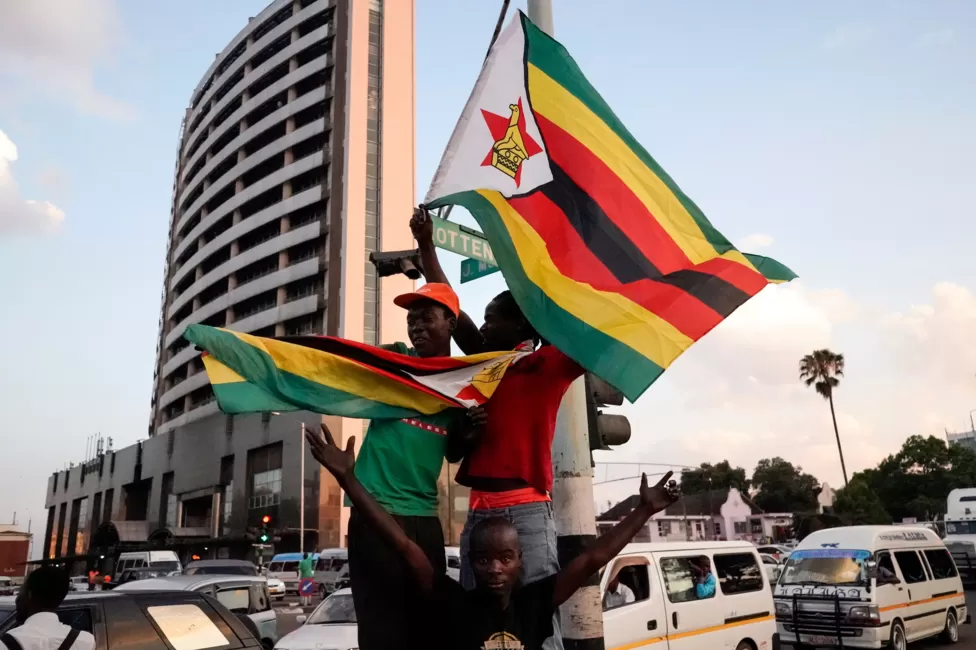On August 23, Zimbabweans waited in long lines to cast their votes in harmonized elections for president, legislators, and councilors. Unfortunately, the electoral process was marred by the detention of election observers and the continuous harassment of independent voices.
On the eve of the election day, the Zimbabwe Republic Police arrested a total of 41 staff members and volunteers from two civil society organizations, the Zimbabwe Election Support Network (ZESN) and the Election Resource Centre (ERC). The Police claimed that their arrests were due to their involvement in what Police spokesperson Paul Nyathi called “subversive and criminal activities” to fabricate the results.
As accredited domestic election observers, ZESN and ERC carried out a parallel voter tabulation (PVT), an internationally recognized scientific and independent method used to verify the accuracy of official election results. This process was endorsed by the Chair of the Zimbabwe Electoral Commission (ZEC), Priscilla Chigumba, as a tool to bolster trust in electoral outcomes. ZESN and ERC have successfully conducted PVTs in the past elections.
With rapid solidarity and legal actions by Zimbabwe’s courageous civil society, those detained were released and granted bail on August 25. However, their freedom will continue to be restricted, particularly given the court’s requirement to report bi-weekly until their upcoming hearing on September 28. In the post-election period, it has been reported that citizen election observers, civil society leaders, and members of a main opposition political party have been threatened and intimidated by Zimbabwe’s authorities.
The detention of ZESN’s and ERC’s staff and volunteers, along with the ongoing intimidation of independent voices in the post-election period, raises serious concerns about Zimbabwe’s electoral process. The questionable raids against ZESN and ERC underscore the fragility of the nation’s democracy, especially in light of preliminary reports from the Southern African Development Community (SADC), the African Union (AU), and European Union (EU) election observers who have expressed deep concerns over the arrests as contrary to regional and international benchmarks on free and fair elections.
Civil society organizations like ZESN and ERC have consistently played an indispensable and independent role in fortifying democratic pillars by promoting and preserving the integrity of the electoral process. By undertaking efforts such as citizen observation and PVT, civil society contributes to fostering an environment where citizens can trust the election outcomes and democratic processes.
The World Movement for Democracy stands in solidarity with Zimbabwe’s civil society organizations working to safeguard the integrity of the electoral process in their country and urges the regional and international community to:
- Continue to speak out against the unjust arrests and demand all charges to be dropped, highlighting civil society’s vital role in a democratic election.
- Continue monitoring the situation, ensuring the safety and well-being of arrested members, and ensuring that future electoral processes remain transparent and fair.
- Continue to support civil society organizations in Zimbabwe to do their vital work.
- Encourage the Government of Zimbabwe to embrace civil society as a collaborative partner in the electoral process to ensure a transparent and inclusive electoral environment.
- Urge the Government of Zimbabwe to refrain from using unconstitutional provisions contained in various pieces of legislation such as the Maintenance of Peace and Order Act (MOPA), the Criminal Law (Reform and Codification) Act, Private Voluntary Organizations (PVO) Bill and any other laws it is promoting to victimize civil society and other voices deemed to be critical of the government.
- Urge the Southern African Development Community (SADC) to ensure that the Government of Zimbabwe adheres to its Constitution, the Electoral Act, the SADC Principles and Guidelines Governing Democratic Elections, and other commitments to regional and international frameworks safeguarding the fundamental rights of association, expression, and assembly for its citizens.



